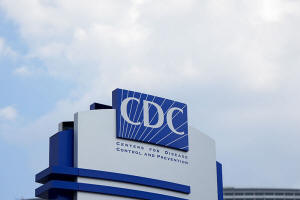AMA and other medical associations are kicked out of CDC vaccine
workgroups
[August 02, 2025]
By MIKE STOBBE
NEW YORK (AP) — U.S. health officials have told more than a half-dozen
of the nation's top medical organizations that they will no longer help
establish vaccination recommendations.
The government told the organizations on Thursday via email that their
experts are being disinvited from the workgroups that have been the
backbone of the Advisory Committee on Immunization Practices.
The organizations include the American Medical Association, the American
Academy of Pediatrics and the Infectious Diseases Society of America.
“I’m concerned and distressed,” said Dr. William Schaffner, a Vanderbilt
University vaccine expert who for decades has been involved with ACIP
and its workgroups.
He said the move will likely propel a confusing fragmentation of vaccine
guidance, as patients may hear the government say one thing and hear
their doctors say another.
One email said the organizations are “special interest groups and
therefore are expected to have a ‘bias’ based on their constituency
and/or population that they represent.”
A federal health official on Friday confirmed the action, which was
first reported by Bloomberg.

The decision was the latest development in what has become a saga
involving the ACIP. The committee, created in 1964, makes
recommendations to the Centers for Disease Control and Prevention on how
vaccines that have been approved by the Food and Drug Administration
should be used.
CDC directors have traditionally almost always approved those
recommendations, which are widely heeded by doctors and greenlight
insurance coverage for shots.
U.S. Health Secretary Robert F. Kennedy Jr. was a leading voice in the
anti-vaccine movement before becoming the U.S. government’s top health
official, and in June abruptly fired the entire ACIP after accusing them
of being too closely aligned with manufacturers. He handpicked
replacements that include several vaccine skeptics.
The workgroups typically include committee members and experts from
medical and scientific organizations. At workgroup meetings, members
evaluate data from vaccine manufacturers and the CDC, and formulate
vaccination recommendation proposals to be presented to the full
committee.
The structure was created for several reasons, Schaffner said. The
professional groups provide input about what might and might not be
possible for doctors to implement. And it helped build respect and trust
in ACIP recommendations, having the buy-in of respected medical
organizations, he said.
[to top of second column]
|

A sign outside the Centers for Disease Control and Prevention campus
in Atlanta is seen as a meeting of the Advisory Committee in
Immunization Practices takes place on Wednesday, June 25, 2025. (AP
Photo/Mike Stewart, File)
 Workgroup members are vetted for
conflicts of interest, to make sure than no one who had, say, made
money from working on a hepatitis vaccine was placed on the
hepatitis committee, Schaffner noted.
Also disinvited from the groups were the American Academy of Family
Physicians, the American College of Physicians, the American
Geriatrics Society, the American Osteopathic Association, the
National Medical Association and the National Foundation for
Infectious Diseases.
In a joint statement Friday, the AMA and several of the other
organizations said: “To remove our deep medical expertise from this
vital and once transparent process is irresponsible, dangerous to
our nation’s health, and will further undermine public and clinician
trust in vaccines.”
They urged the administration to reconsider the move "so we can
continue to feel confident in its vaccine recommendations for our
patients.”
Some of the professional organizations have criticized Kennedy’s
changes to the ACIP, and three of the disinvited groups last month
joined a lawsuit against the government over Kennedy’s decision to
stop recommending COVID-19 vaccines for most children and pregnant
women.
In a social media post Friday, one of the Kennedy-appointed ACIP
members — Retsef Levi — wrote that the working groups “will engage
experts from even broader set of disciplines!”
Levi, a business management professor, also wrote that working group
membership “will be based on merit & expertise — not membership in
organizations proven to have (conflicts of interest) and radical &
narrow view of public health!”
HHS officials have not said which people are going to be added to
the ACIP workgroups.
All contents © copyright 2025 Associated Press. All rights reserved
 |